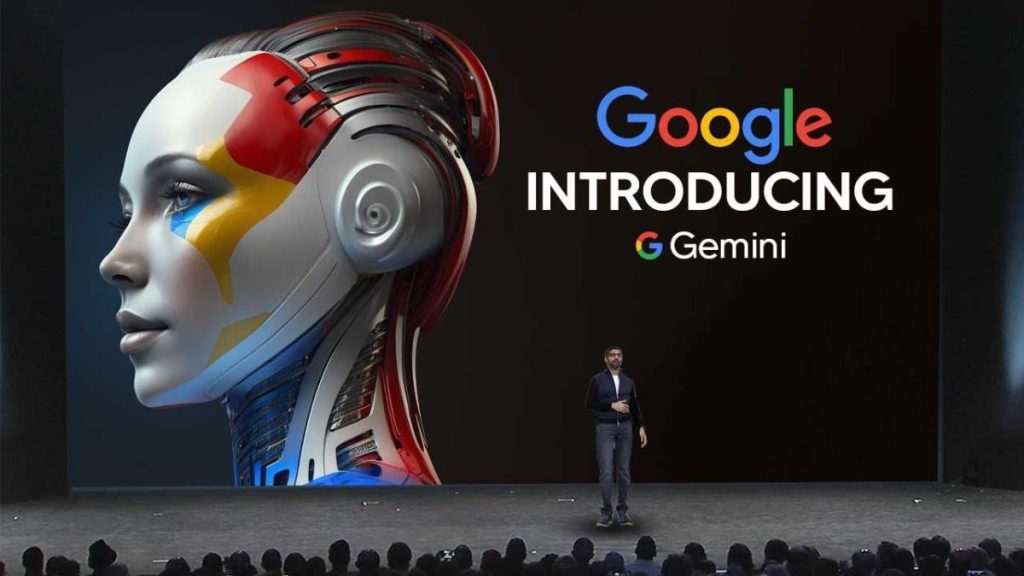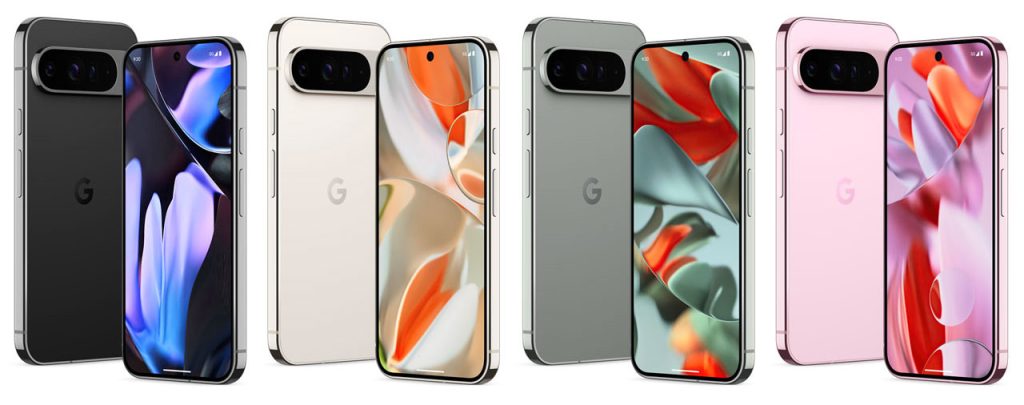Midnight Marvel: Google’s Integrated AI Update
In the earliest hours of August 14th, Google galvanized the tech realm with a new Android system update, seamlessly integrated with the Gemini AI assistant, and premiered the flagship Gemini AI-powered Pixel 9 series smartphones.
Preemptive Strike in the AI Arena
While Apple had heralded its intention to enrich its systems with the Apple Intelligence later this year, Google aspired to trump this move by hastening the deployment of its AI technological prowess to the consumer market. “We’ve completely overhauled the experience of the Gemini AI assistant,” declared Google’s top brass, where the term ‘AI’ became the keynote of the release event, emerging prominently almost a hundred times, and putting palpable pressure on rival Apple.
A Universal Assistant for a Global Audience
Samir Samat, President of Google’s ecosystem, avowed that Gemini supports an impressive arsenal of 45 languages across over 200 nations and regions, emphasizing its expansion to include a multitude of older and non-flagship Android devices. “Gemini is now a global entity, definitely not confined to English-speaking markets alone,” he asserted, a clear spearhead against Apple’s Intelligence, which as yet caters exclusively to the American English-speaking cohort.
The Privacy Edge of Gemini Task Management
Google also spotlighted the privacy edge of Gemini’s task processing capabilities, which allows complex personal inquiries to be handled within Google’s own secure cloud, eliminating the need to route any personal data to third-party AI providers, a subtle jab at Apple’s collaboration with OpenAI to integrate ChatGPT with Siri.
Multimodal Mastery
Multimodal support means the Google Pixel 9 series transcends mere text understanding; it grasps images, audio, and speech. The new model not only enables searching information from screenshots but also allows overlaying Gemini onto another app to answer queries or generate content.

Google’s Latest Suite of Devices
This launch brought a complete family of new devices including three full-screen smartphones—the Pixel 9, Pixel 9 Pro, and Pixel 9 Pro XL—as well as a folding phone, the Pixel 9 Pro Fold, plus two smartwatches and a set of earbuds.
Each smartphone embeds Google’s in-house Tensor G4 chip, a flagship processor engineered precisely to steer the Gemini Nano AI, making it a multimodal marvel in its own right.
Superior Specs with a Splash of AI
Pixel 9 and Pixel 9 Pro brandish 6.3-inch displays, the latter boasting a superior LTPO screen, while the Pixel 9 Pro XL stretches to 6.8 inches. To underpin AI operations, the new Google phones start at a 12GB memory capacity, with the Pro models boasting 16GB.
Behind their distinctively designed camera strips, all three phones sport a horizontal triple camera setup with a 50-megapixel wide-angle and a 48-megapixel ultra-wide lens. The Pro models add a 48-megapixel telephoto lens for 5x optical and a stunning 30x super-res digital zoom. The Pro series also upgrades the front camera to an impressive 42 million pixels.
Fingerprint security on the two Pixel 9 Pros has been revolutionized with the switch from optical to ultrasonic scanners, boasting a 50% speed increase according to Google, which claims faster and more reliable readings without the necessity for bright light.
Pricing and Availability
The Pixel 9 initiates its price tag at $799, while the Pixel 9 Pro and Pixel 9 Pro XL begin at $999 and $1099, respectively.
The New Fold in Tech: Pixel 9 Pro Fold
Google’s second-generation folding phone, the Pixel 9 Pro Fold, heralds a larger inner screen from 7.6 to 8 inches and an external display extending from 5.8 to 6.3 inches, while also sporting the Tensor G4 and 16GB RAM. In pursuit of a slimmer design, camera resolutions on the wide and telephoto lenses are optimized to 10.5 and 10.8 megapixels. As a premium foldable flagship, the device is priced at $1799.

Added Perks with Pro
Owners of the Pro series phones are treated to a year’s subscription to Gemini Advanced—prerequisite access to Gemini Live features reminiscent of ChatGPT’s innovative voice mode.
The new smartwatch Pixel Watch 3 is available in 41mm and 45mm variants, boasting larger and brighter displays. Its extended battery life and enhanced health and fitness tracking features, including superior measurement of running and training loads sans Fitbit subscription, complement the functionality. The watch even alerts for a ceased pulse, potentially lifesaving during cardiac arrest.
Pixel Buds Pro 2, now 27% smaller and 24% lighter than the previous generation, exhibits improved noise cancellation. Leading the pack to support Gemini Live, these allow users spontaneous, natural interaction with the AI assistant wherever they are. Pixel Watch 3 has a price tag of $349; Pixel Buds Pro 2 at $229, both shipping from September 26th.
A Tech Giant’s Struggle for Market Share
Despite Google stressing the superiority of its hardware, IDC data paints a less dominant picture, with a sub-1% market share in global smartphone shipments as of the second quarter of 2024, trailing far behind Samsung’s 18.9% and Apple’s 15.8%. Google’s focus on high-end pricing and limited market presence are contributing factors. In the USA, they sit comfortably as the fourth-largest smartphone maker, holding a modest 4.5% market share.
Historically, Google’s coffers weren’t exactly filled by its hardware ventures but rather by advertising revenue from its search engine and YouTube. Yet, the Pixel devices serve as Google’s showcase of technological progress, stimulating the development ecosystem for the Android OS, currently employed by manufacturers including Samsung. As AI technology evolves, the cutting-edge Gemini AI features offer Google a chance to garner fresh revenue streams through subscriptions.










































Discussion about this post